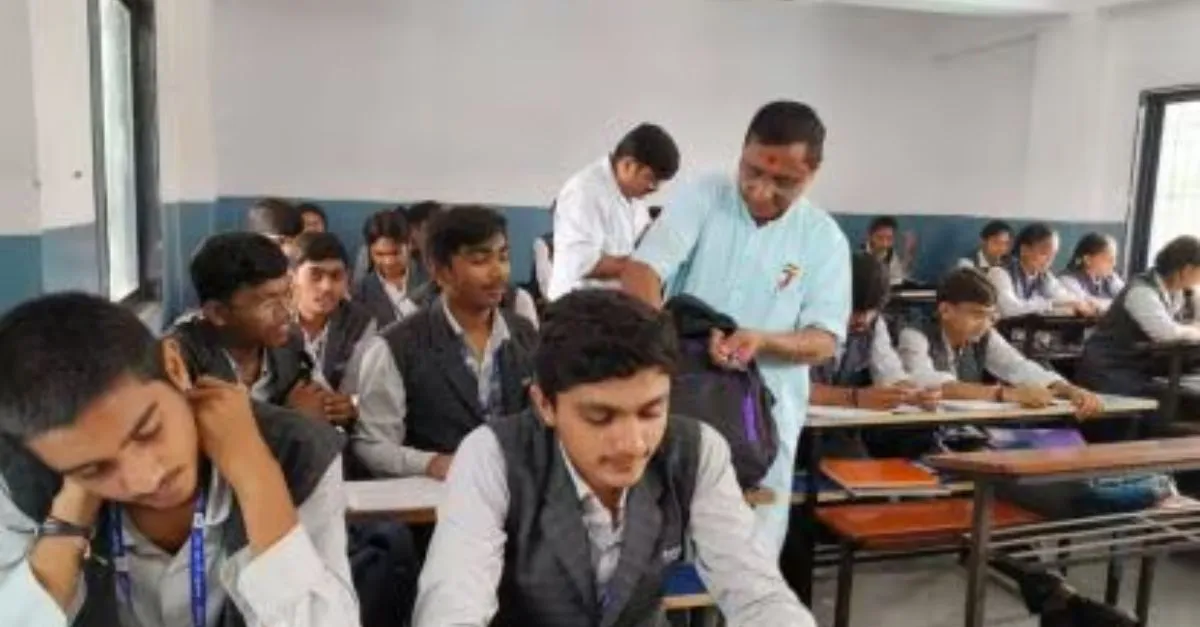- By Yashashvi Tak
- Tue, 02 Sep 2025 10:59 AM (IST)
- Source:JND
The murder of Class 10 student Nayan Santani at a school in Ahmedabad has sparked fresh concerns over campus safety. In response, schools have begun conducting surprise bag checks. The contents uncovered during these inspections have left teachers and administrators deeply alarmed and disturbed.
According to the TOI report, one principal puts it, "It is surprising and worrying. It shows how far student life stretches beyond their classwork. Alongside the expected books and tiffins, there were mobiles, tablets, lighters, cigarettes, vapes, and in one rare case, alcohol in a water bottle."
Another school principal adds, "We have found whiteners, lipsticks, kajal, nail filters, deodorants, oral contraceptives, condoms and even spare clothes and footwear."
Things Found In School Bag During Surprise Bag Checking
During recent inspections, school authorities discovered alarming items in students’ bags, blades, paper cutters, and even chains. In the aftermath of the SDA case, one institution has gone so far as to prohibit scissors and rounders entirely. “Unless parents receive a written instruction from the school, they should not be sending these items with their children,” an educator emphasised.
Beyond sharp objects, schools have also seized playing cards, explicit or romantic novels, costly pens, flashy jewellery, journals, and cash amounts beyond the usual ₹100–200. A principal told TOI, “Parents are informed immediately when such articles are found, but the items are returned only during parent-teacher meetings. Some parents admit that their children simply refuse to listen to them.” Another teacher added that a few parents even dismiss the presence of “adult books,” considering them a normal part of adolescence.
Mobile phones remain another concern, with certain parents encouraging students to carry them for safety reasons, particularly when traveling to tuition classes. In more serious situations, such as cases involving drugs or dangerous weapons, schools escalate the matter to the District Education Office or even the police.
Still, most administrators insist that discipline alone is not the solution. “Counselling is our main approach. Punishment doesn’t address the root cause. If a child brings a blade or a romantic novel, we must ask why before deciding on next steps,” a principal explained.
Perhaps the most unusual discovery has been a Rs 1,500 imported energy drink. According to an administrator from a leading school, it has become part of a covert barter economy: “Students sneak it in disguised bottles and trade sips for favours, getting homework done, project work completed, even saving a seat in class.”
Educators agree that bag checks only reveal surface-level issues. “What children carry reflects their environment, homes, screens, and streets. Confiscation is easy, but the real task is helping students understand why they feel the need to carry these things,” a principal noted.
Psychologists echo these concerns. Dr. Prashant Bhimani stressed the powerful role of peer pressure and pop culture: “When one student brings something, others follow. K-pop, web series, and popular media often glamorize adult behaviours that teenagers want to copy.”
ALSO READ: Lucknow Power Cut: NHAI Cable Damage Hits Over 11,000 Consumers In Kakori; Compensation Demanded
Counsellor Smita Ghosh added that exposure to violent OTT content can distort perceptions: “Some children begin to believe blades, paper cutters, or chains are necessary for self-defense, as if violence is normal. The bigger problem lies at home, where addictive substances are accessible and easily normalised.”


